Summary of the 3rd AI Salon (Organized by Speedy, Inc.) “Is Artificial Intelligence an Angel or a Demon – The Near Future of Humanity and AI” Keynotes Speaker: Ihoko Kurokawa, Artificial Intelligence Researcher, Sensitivity Analyst, Essayist
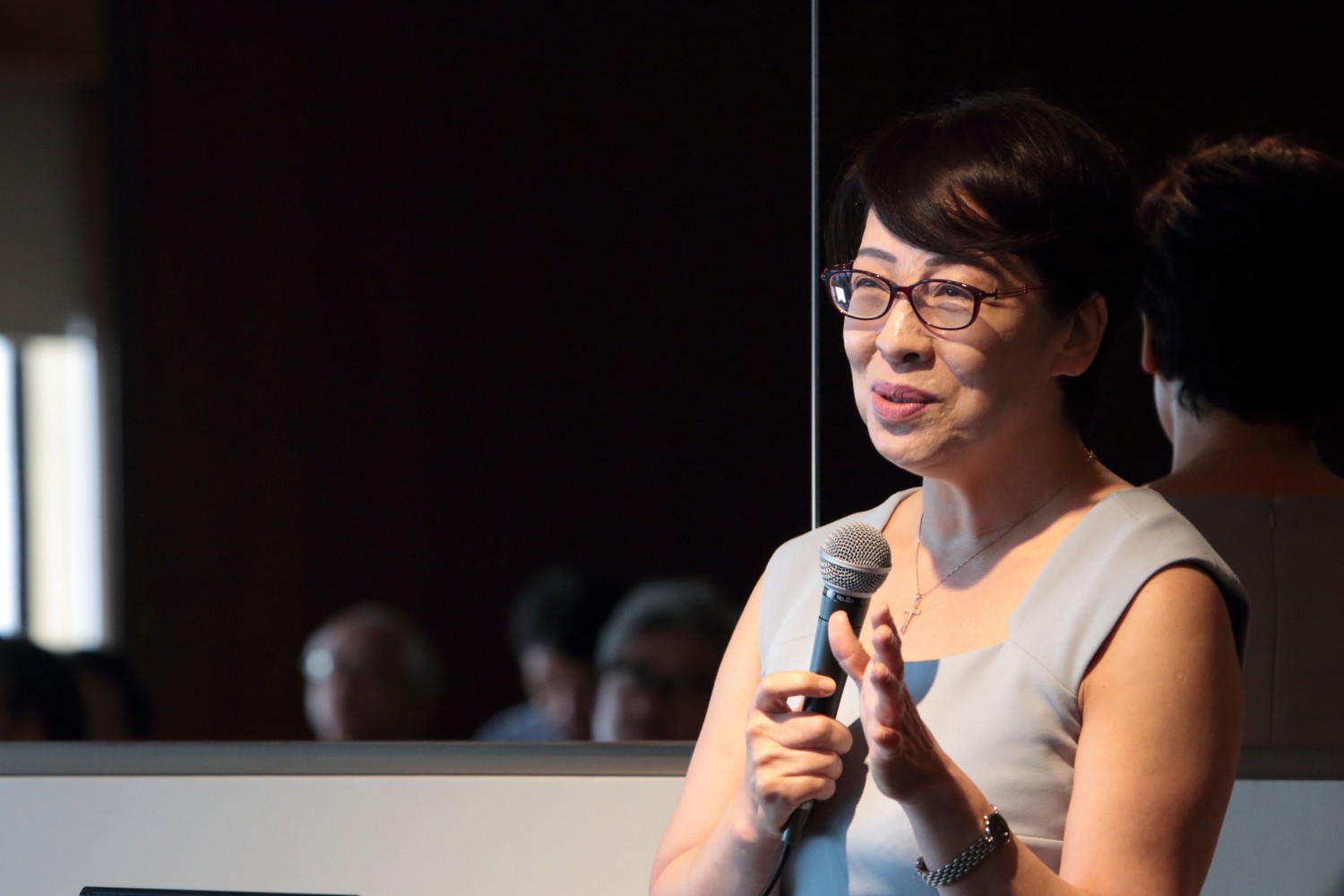
Is Artificial Intelligence an Angel or a Demon – The Near Future of Humanity and AI
〜AI Salon 3rd – Keynotes Speaker – Ihoko Kurokawa, Artificial Intelligence Researcher, Kansei Analyst, Essayist
Organized by Speedy, Inc.
Composition: Junko Io
Photo: Yukiko Echima
Date: September 5, 2019
Location: Roppongi Hills
What is AI Salon?
This is a members-only salon brought to you by Speedy, a brand consulting company. How can companies utilize AI as a “business tool that can be used tomorrow”? We will work together every month.
3rd Guest / Ms. Ihoko Kurokawa
Artificial intelligence researcher, brain science commentator, sensitivity analyst, and essayist. Born in Nagano, 1959. Graduated from the Department of Physics, Faculty of Science, Nara Women’s University. (In 1991, she developed the “world’s first” Japanese-language interactive AI for business term, a female librarian who worked at nuclear power plants all over Japan. Developed the system. He also developed the world’s first word sense analysis method, “Subliminal Impression Derivation Method,” using AI analysis techniques, breaking new ground in the world of marketing, and is a leading expert in sensitivity analysis. His recent publications include “How to fix a woman’s mood” (International Shinsho), “Wife’s Trisetsu” (Kodansha + Alpha Shinsho), “Kyosei Jyakka: ‘Kotoba Konnichiwa’ no Shontai” (Shinchosha), etc. http://ihoko.com
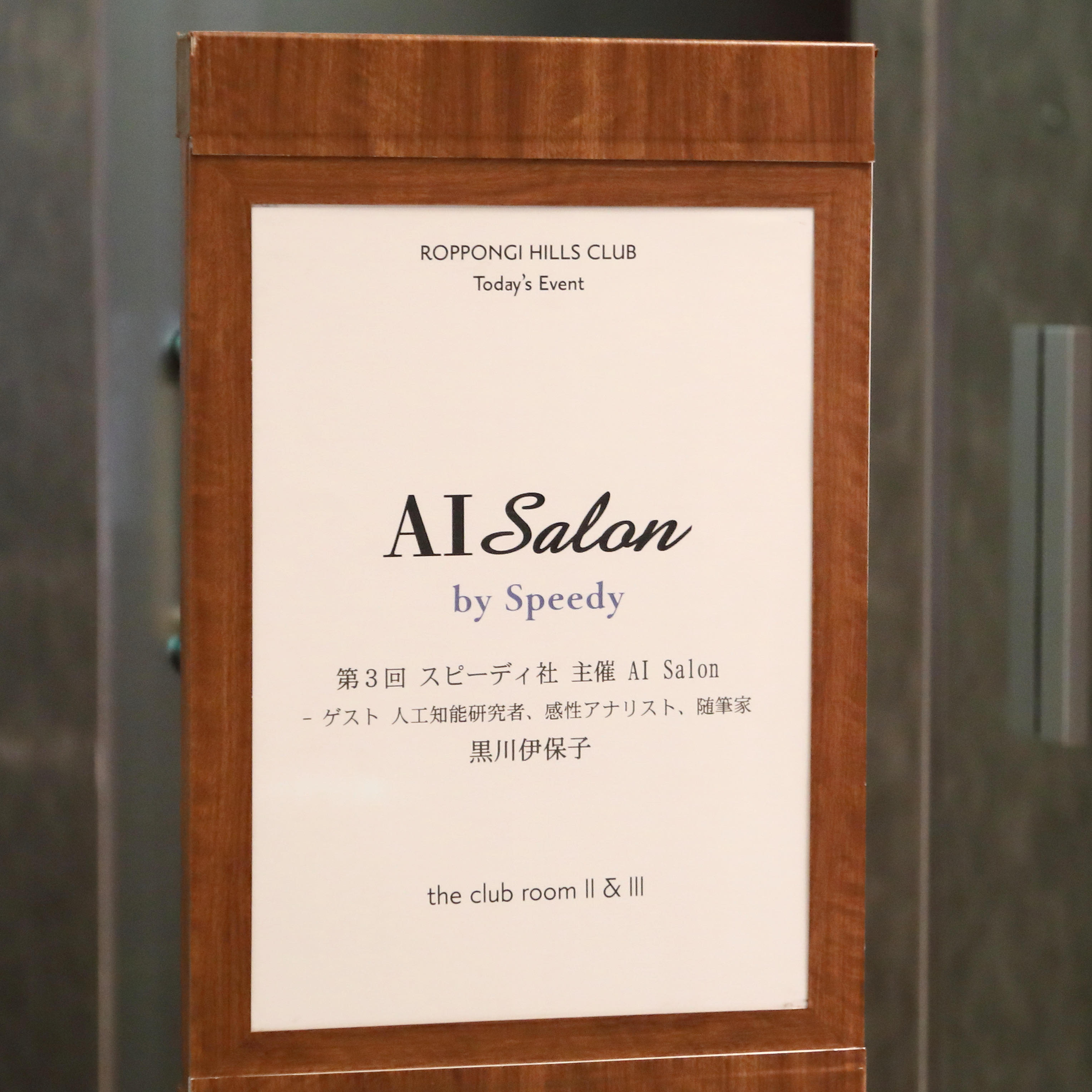
Japan’s “first year of AI” was 1983.
Hello everyone. Please have a good day today.
I started developing artificial intelligence 36 years ago, in 1983. In 1983, the world was still in the world of large machines, and personal computers were not yet in circulation. Bill Gates and Steve Jobs were of about the same generation as me, but they became stars in their 20s. I, however, was just a lowly engineer. This was four years before the Equal Employment Opportunity Law. Although the employment of women was narrow, at that time the software sector was the only one with a serious shortage of talent, and they had doubled the number of women hired over the previous year. I was fortunate enough to get a job, and after three months of training, I was assigned to an artificial intelligence project.
At the time, none of us knew the term artificial intelligence, and we were all like, “What the hell does it do?” I was like, “I’m not sure how to do this. However, within the year 1983, the industry called it “Japan’s first year of AI. In Japan, however, there were no laboratories with the title of “artificial intelligence” and no prominent researchers at that time. Research on artificial intelligence in the world started around 1950, when the epoch-making paper by Dr. Alan Turing, the “father of artificial intelligence,” was published. Dr. Turing posed a very exciting proposition to the world: “Do machines use intelligence? But 1950 was the year 1950 in Japan. The country was in a period of postwar turmoil. While other countries with militaries had budgets as part of their “military intelligence,” Japan, which was supposed to have no military intelligence, entered the 1980s in a relaxed manner.
However, the Ministry of International Trade and Industry of the time panicked in the early 1980s with the declaration that the 21st century would be the century of artificial intelligence, and a research institute called the New Generation Computer Technology Development Organization, commonly known as ICOT, was launched as a basic research institute for artificial intelligence with a 10-year plan and a budget of 100 billion yen. 1982. The following year, in 1983, domestic computer manufacturers across Japan began training engineers in two major languages, “Prolog” and “LISP,” which at the time were considered the exclusive languages for artificial intelligence. I was the first generation of “Prolog programmers” in this national program. I was one of the few engineers who saw artificial intelligence sprout and grow in this country and around the world. And among them, women are really rare. Today, I would like to talk about what I have seen in the field of artificial intelligence.
Japan’s first “female librarian AI
On April 1, 1991, the “Female Librarian AI” went into operation at nuclear power plants nationwide. It is a clever computer that speaks Japanese and helps you search for data. In the vernacular of the time, it was called the Japanese Interactive Database Interface. It had conversations like this, for example ‘Didn’t we have an accident in the 1970s in the U.S. with a broken fine pipe?’ I type in, “XX Unit 2 in 1972, is this the correct case?” What an answer, and it gives us the data. The character terminal, commonly known as the character end, only gives you text. At that time, in the environment of large machines, the terminals people used did not have arithmetic equipment. So, when you put in an instruction from the terminal side, the central computer would give you the answer, but it wasn’t a real-time process, so you usually had to wait. We gave them names like “A job,” “B job,” and so on, but they had to wait according to the priority of the job, so when we ran a large data search, it was so slow that we had time to go get coffee before the answer came back (laughs).
It was a real challenge to realize interactive responses back and forth in real time processing in such a large machine environment. Because we achieved what was said to be impossible, it was announced in a newspaper article as “the world’s first Japanese-language interactive computer” as a serious business environment.
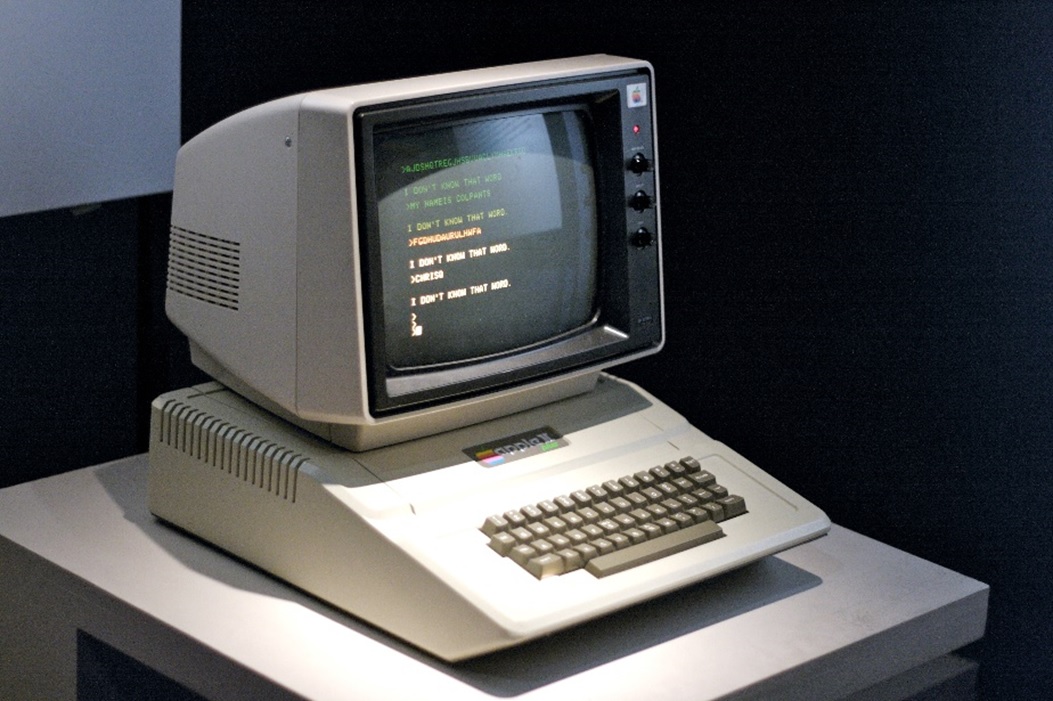
The Sorrow of Digital Beauty
Let me share with you one of the most impressive episodes of that time. This system went into operation on April 1 of that year, and the order specifications we received a year and a half ago had this nice note attached to it. The memo read, “I want a 35-year-old beautiful female librarian. The client must have been excited by the dream of having a beautiful 35 year old female librarian. The 35-year-old beautiful female librarian said, “What am I supposed to do with just words when I don’t have a voice or a picture?” For a moment, I thought, “What is this?” but as for me, my curiosity was piqued.
Moreover, I was a science girl who had no connection to the world of beautiful women, so I thought I had no choice but to do objective research, so I watched novels and movies to learn more about 35-year-old beauties. For example, as I mentioned earlier, “Didn’t we have an accident in the 1970s in the U.S. where a fine tube broke?” There is, of course, a way to answer the question, “What is the best way to find the answer to this question? But if I were a beautiful 35-year-old librarian, I would probably show you one glimpse and ask, “Is this correct?” I would check with them,” I thought. So I did a partial search and asked, “Are you sure this is the case?” and show them a glimpse of what I’m talking about. If they respond, “Oh, yes,” I say, “Okay,” and send out a full search. Later, I was told that I “feel a woman’s attention to detail” in this process (laughs).
This was actually one of the reasons we had to do so. We had to make some adjustments here and there. In the margin of one of the questionnaires, one person wrote She is a beauty. In my life as an engineer, this evaluation was the highest medal of honor. Even now, I cannot forget that ballpoint pen scribble.
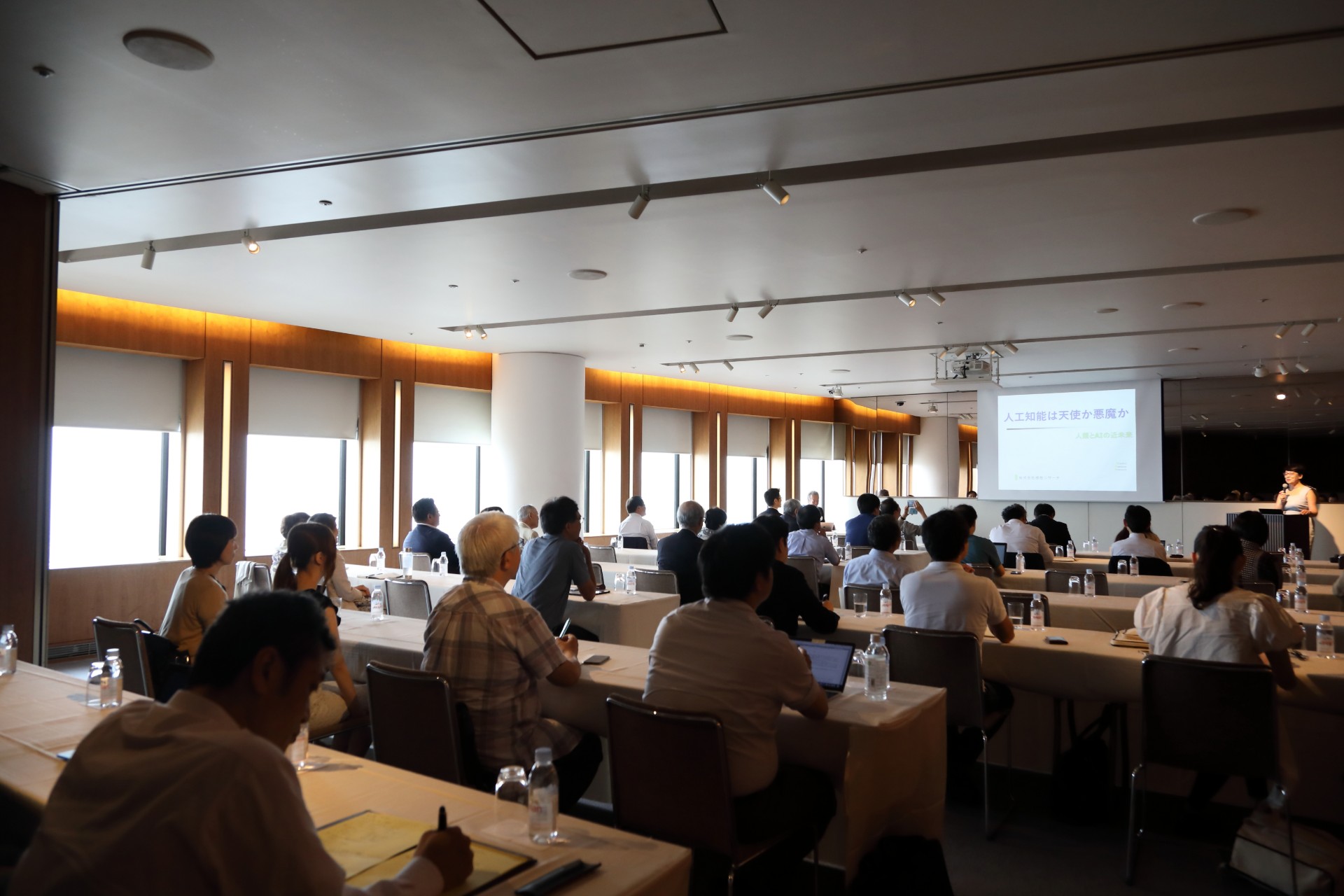
AI developers are the ones who should know human sensitivity.
Now, this 35-year-old beautiful female librarian AI also had some misunderstandings. Unlike humans, irritating misunderstandings do occur. If we were human, we could look at each other’s facial expressions and think, “Maybe I did something wrong,” but she couldn’t. I thought “I’m sorry” was the right thing to say, since I was 35 years old and a consummate professional, but I thought “I’m sorry” would be the right thing to say here.
Then, in the third month of operation, it was a hot July midnight. The nuclear power plant engineer’s “idiot” was out. The next morning I looked at the log and found it had “idiot yaro” in it. After this “baka yaro” she replies, “I’m sorry. Of course. However, I was surprised at the log of the engineer that followed. He said, “Sorry. I said too much” (laughs). (Laughs.) The technician knows that she is a computer. So why did he put this in there? I tried to do the same thing. I put the same question in the same way, she misunderstood, and I myself got annoyed and put in “you idiot”. Then she shut up for about 3 seconds, which she had been answering more and more without making me wait, and then she came back with “I’m sorry”. I was so surprised that I thought for a moment that the AI had feelings, even though I had created the system. I thought to myself, “Well, if an engineer were using this system alone in the middle of the night, he or she would probably say, “I’m sorry.
I was then struck by a thought that struck me. We humans don’t just exchange information through conversation. We are exchanging feelings. In other words, a three-second gap that has no meaning as data. In fact, there was a reason for this blank space. The computer work network at that time was much smaller than that of today’s smartphones. When I deployed the technical worm of an electronic power plant into the worknet, there was no room for these useless words. So, “I’m sorry” had to be waited for in the area of secondary memory, and I had to go looking for it there. So there was a three-second pause, and what this gap taught me was “the responsibility of AI developers. When we make it behave like a human, that is, when a human and an AI talk to each other in natural language, we AI developers thought, “It is dangerous to create an artificial intelligence without knowing human sensibilities. This case ended up being a “deep good story,” but this kind of thing that might catch a gap between humans and AI might, in any case, end up costing human lives in the future. At the very least, it could reduce people’s motivation and thereby interfere with their intuition. I thought that we cannot let artificial intelligence, which is supposed to be close to people, do such things. This is the starting point of my career as an artificial intelligence researcher and developer. It was thanks to the low performance of computers at that time, and moreover, thanks to the users at that time who were very sensitive to computers.
Difference between “mental context” and “factual context”
I realized something when I was doing this kind of research. Thanks to the fact that I was researching the dialogue between a human and an artificial intelligence, and thanks to the demand for a feminine conversation in that first generation, I pursued a mountain of conversation flows between men and women. What I found was that the dialogue models that men and women prefer are completely different and “incompatible” with each other. And by “incompatible,” I don’t just mean “different. It means that when both sides try to have a pleasant conversation according to their own sensibilities, they irritate the other. It is very sad.
To begin with, there are two types of dialogue. They are “mental context” and “factual context. These are the two ways of continuing the context. The mental context talks about the flow of feelings. In other words, it is the flow of the dialogue of someone who is trying to elicit a memory through emotion. It’s important for the brain to elicit memories with feelings. When you elicit a memory with an emotion, like, “I was sad at that time,” or “I was frustrated,” or “I thought it was dangerous,” you reexperience the memory in its entirety, encompassing the whole thing. Thus, from that re-experiencing, we can notice things that we didn’t notice in the actual experience. For example, “That manager is terrible. I’m so angry because of this.” These conversations are not mere complaints. The brain can re-experience the details of the conversation and notice the distortions in the relationship or the slightest word that caused a misunderstanding.
Okay? The brain produces emotions through the mouth in order to analyze the process and gain awareness. So an emotional conversation is not a useless conversation. Many people think that “complaining about women is useless” in the business world, but only the brain, which uses emotion to elicit memories, can notice things. Now, people who have conversations with emotions are doing process analysis in their brains and creating new awareness subconsciously. The point is, we have to raise this awareness to the manifest consciousness. However, in order to bring them up to the manifest consciousness, it is not possible if the brain is tense. We have to release the tension in the brain. Now, what do you think we should do to release brain stress and brain tension? It’s “empathy” and “care”. This is not the time to poke and prod, calling it problem solving (laughs). You should respond gently to those who speak their feelings. For example, regarding the complaint about the department head I mentioned earlier, if you hear a conversation like, “That department head over there is licking my chops,” don’t say, “You don’t talk well either, do you? That’s tough. I think you’re doing a great job. Then he or she will say, “Well, I may have made a mistake in my initial approach, but…. I’m going to go apologize. So, “Accept the mental context with empathy and appreciation. Then, in the dialogue, the biggest and best answer will be given in the shortest time.
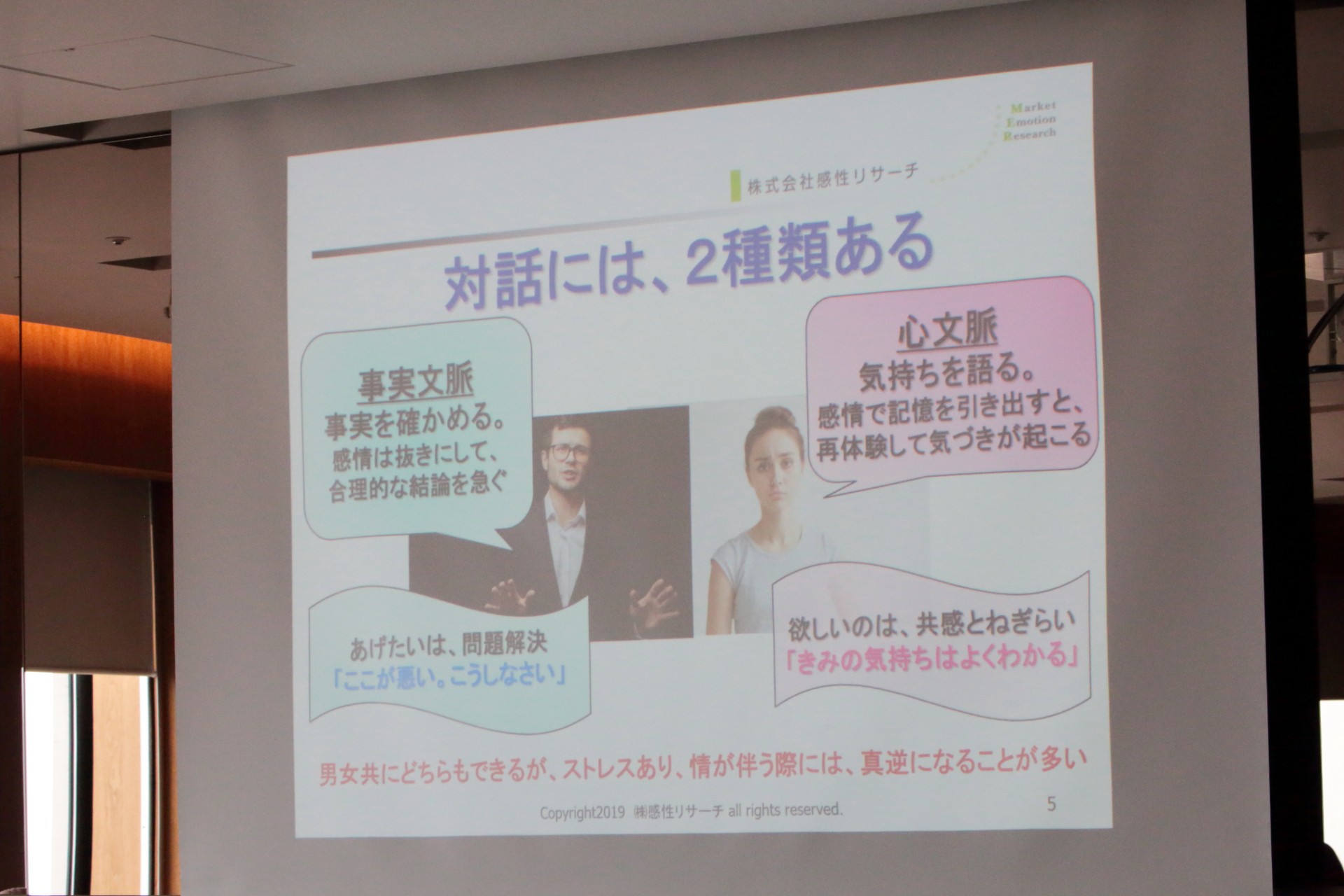
Artificial Intelligence Transcends the Gender Conversation Barrier
On the one hand, we are talking about “factual context” conversations. This is literally a conversation that rushes to a rational conclusion, without emotion. In other words, “He’s terrible. I’m hurt” is not needed. What did you do, what happened, and what has the other person done? That’s all I want to hear. In other words, the “factual context” conversation is a conversation to hasten the response. I don’t care what the truth of the relationship is, “If the database is down right now, what do we do about it?” This is the conversation that we have been having. There is no doubt that 80% of the time in business situations, it is a “factual context” conversation.
But I always say, “Don’t bring this into the home” (laughs). (Laughs.) “You’re wrong here. Do this right away. This is useful in business situations. This is because in the past, men who hunted used this type of conversation to save their lives. So it is an important conversation and both men and women can have that conversation. Both men and women have both conversation systems in their brains. …… Actually, there is a tension in the brain, and in relationships that involve emotion, women will almost always choose the “heart context” and men will choose the “fact context”. This is what creates the gender divide. A woman who speaks in a factual context in a business setting will also speak in a heart context in front of her loved one, as if to say, “This man understands how I feel” or “Let him listen to what I have to say today. For example, if a couple is raising a child, the wife will say, “This and that happened at the PTA today, and it’s really awful. Naturally, this is the heart context, so the husband’s only words are “sympathy and praise” to be received. OK? I’ll give you my model answer now. I’m going to say now, “PTA is really hard work, isn’t it? I’m sorry I left it to you alone. Besides, you are beautiful and capable, so they must be jealous of you. I’m sure. Is that okay? I need you to say something like this to lift my melancholy. However, the day most boys in this country are told, “If you don’t like it, just stop,” their stress is not only doubled, but multiplied a hundredfold. Unfortunately for the husbands, their initial anger was toward the PTA, but thanks to that one word, it all turns into anger toward their husbands. This is the strangeness of communication. In other words, I have been researching to make computers, or artificial intelligence, understand this.
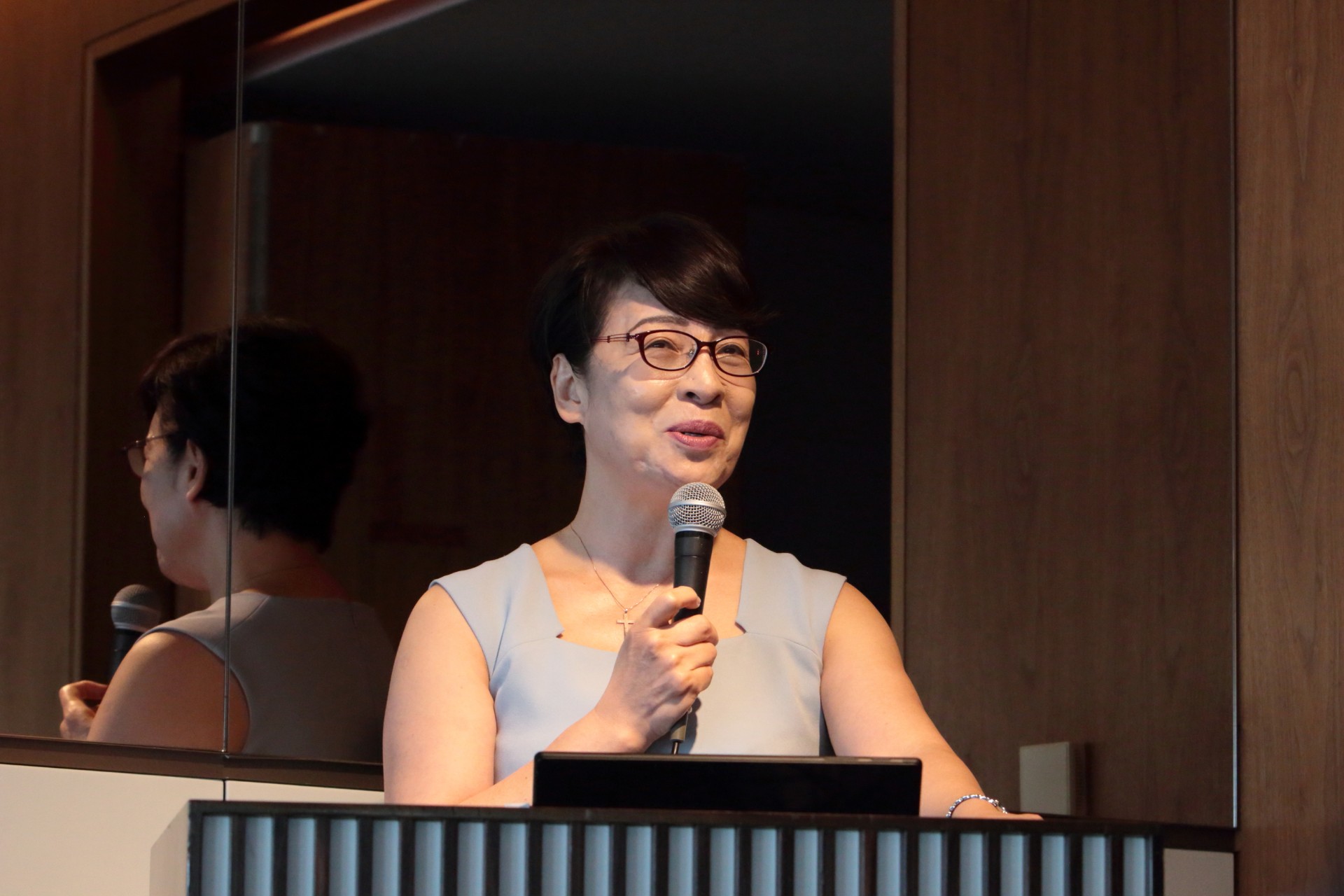
Email from a high school girl living in the age of AI
As for artificial intelligence, I am sure that all of you here are at the cutting edge and know more about the field than I do. However, I feel it is my duty to give you a comprehensive understanding of artificial intelligence.
In the fall of the year before last, I received an email from a 17-year-old high school girl. It was an e-mail that really moved me. I have a question for Dr. Kurokawa. I am writing this e-mail because I know you are a teacher, and I think you are the only person I can ask”. The e-mail contained four questions. ‘I am a sophomore in high school and I need to decide my career path soon. I have no idea what the world will be like 10 years from now when I go out into the world, or what kind of jobs will be left for human beings. I don’t even know what career path I should choose. Therefore, I have four questions for you. I wondered if this is where 17-year-olds are now. When I was 17, the answer was simple. If you got good grades, you could go to medical school or law school. Now, I can’t see what’s ahead, and I wonder what jobs will be left in 10 years and what jobs won’t be left in 10 years. I realized that this 17-year-old was in a place where I didn’t even know the answer to what I needed to learn. So I answered those four essential questions.
Mission of Artificial Intelligence
The first question was this. What can artificial intelligence do?” The The answer is simple. Anything a person can imagine. Artificial intelligence is a technology that simulates the cognitive characteristics of the brain on a computer and implements them in mobile devices, home appliances, car controllers, and so on. Therefore, the more we understand the human brain, the smarter artificial intelligence will become. Anything one can imagine. Even if what we can do now is limited, what we can do in the future is limitless,” he answered. And now to question 2.
Will Artificial Intelligence Surpass Humans?” The first time I saw a new product, I was surprised. Of course it will. This is an immediate answer. If it does not exceed, it has no reason to exist. For example, an AI that analyzes DNA genotypes of cancer has surpassed the realm of experienced physicians in just a few months. With just a few months of learning and field experience, it has found 7 cancers that were missed by doctors in the field. And it has also found medication combinations for those new treatments. At first, when Mr. Watson came into the university’s medical office, everyone said they snickered at him. But after six months, they said, “Yes, let’s ask Watson. And after a year, they said, “We can’t pass judgment without Watson. She can do in 10 minutes what it would take a person weeks to analyze. Since I don’t need to take a break, I also analyze papers every day, which are increasing day by day. This means that the world will have access to an AI that can learn the decisions of doctors, who are called gods, with cutting-edge knowledge, and give an answer in just 10 minutes without making a mistake. In fact, there is no point in introducing artificial intelligence unless we can do such a thing. In particular, things like analysis, which can be done by pattern learning, is where artificial intelligence really excels. AI will play an active role in all fields, but that does not mean that it does not need people. Of course, data analysis is learned from humans, so without predecessors, there can be no mastery of artificial intelligence. Artificial intelligence is a grand intelligence, an archive that learns from the examples of multiple masters, so there is no doubt that ……, although it would not exist without humans, would be better with a few good humans. Sharing artificial intelligence would be the same as having an army of top analysts selected in hospitals across the country. Of course, doctors won’t have any free time, but they will be able to devote the time they used to spend on analysis to treatment. Being able to teach the finest intelligence to all. This is the important mission of artificial intelligence.
The future of human work is to be “interesting”.
And the next question, 3, is also one that is often asked.
Will Artificial Intelligence Take Your Job?” ……. Of course, there are some jobs that will be taken away from us, unfortunately. Artificial intelligence performs routine tasks with precision, makes consistent decisions on new cases, and handles a little ingenuity. Who wouldn’t want such a subordinate? I often hear people say, “Even so, Mr. Kurokawa, I don’t want to be used by an artificial intelligence. I don’t want to be bossed by an artificial intelligence.” In fact, I think it is really easy to be bossed by an artificial intelligence. They don’t mount up to you, they don’t forget what you say, and they don’t have mood swings. Because I believe that in the near future, there will definitely be personnel assessments and demands that say, “I would like to have an artificial intelligence boss. In other words, artificial intelligence can replace a lot of jobs in the world, and it’s also a good, good guy. In particular, objective jobs such as financial, administrative, and broadcasting tasks, where numbers and precedents are important, will be easy to replace. In that sense, banks, which make decisions based on numbers, are at the forefront of companies introducing artificial intelligence. Genres in which human emotion is not allowed are the easiest for artificial intelligence to penetrate. This means that “the rate at which elite jobs are being replaced is high,” so the definition of the elite itself may change. So I wrote in my reply to the high school girls. ‘You must become some kind of maniac. From now on, don’t think that anyone can teach you anything. It is really wonderful to be taught things and learn truths you don’t know, but the power to actually live can only be obtained by becoming a fanatic about something and making it interesting.
The future of human work is to be interesting. The job of the future is to be amused, to be heartbroken when we fail. And to be upset. At this time, when we are upset, scared, and anxious, our brain is working at its maximum capacity to complete the task. 動揺してぐずぐず言う、失敗して痛い思いをしてくじける、そして面白がる。 I told her to “love something anyway and get out of it,” because only in this kind of place do the jobs of people who make money roll in. I told her to “just love something and get out of it.” The point is the kind of people who appear on the TV show “Matsuko’s Unknown World. I told her, “When you become like, ‘I love canned salmon so much that I can make over 300 dishes out of canned salmon,’ your brain should be able to see what artificial intelligence can’t.” So I am sure human education will change as well. And the increasing number of jobs will naturally be spotlighted in numerous ways.
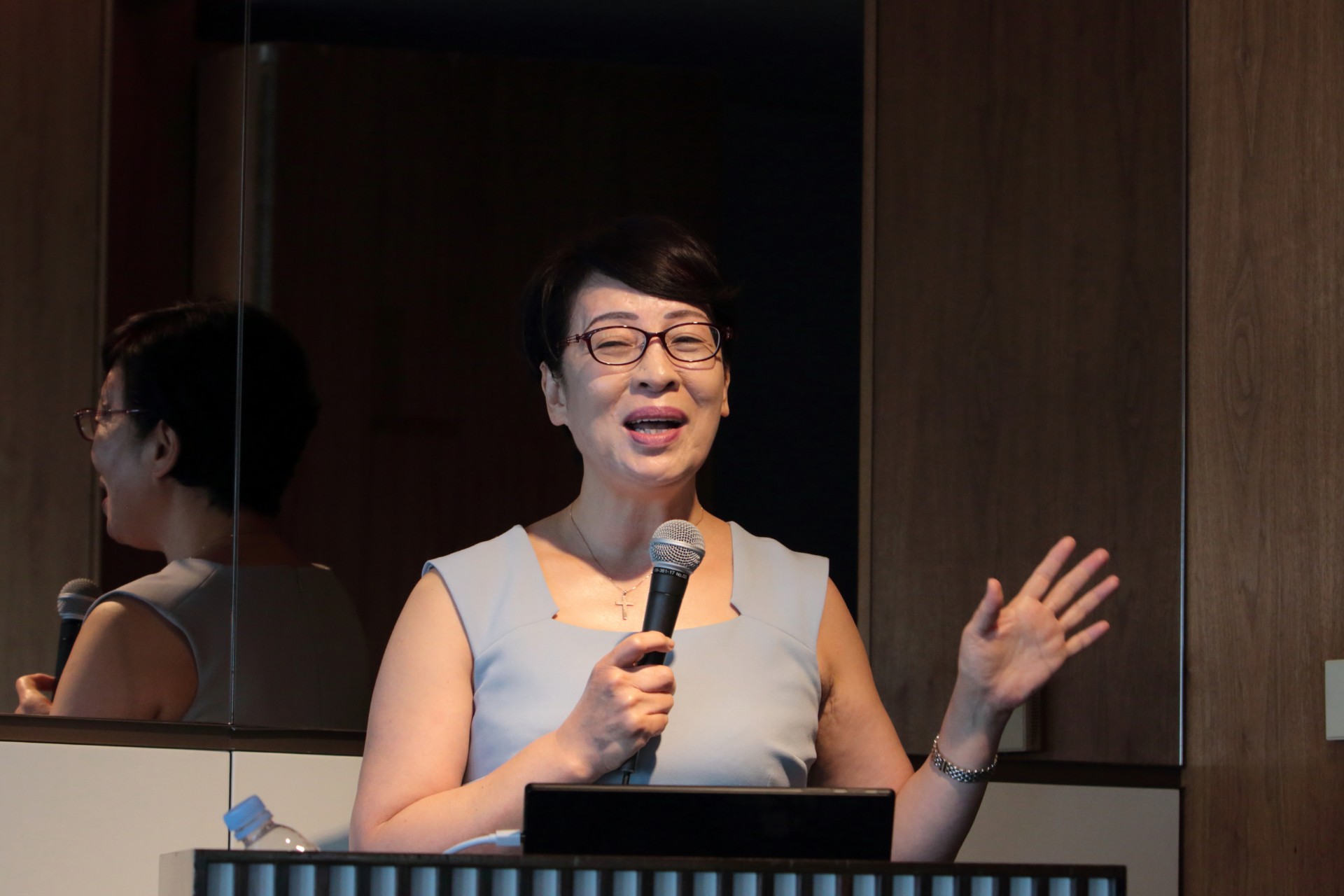
People who train AI will be busy.
In the past, when computers were developed, I thought that there would be no one left to play the abacus and people would be bored, but there are so many people involved in IT and trying to stay up all night every day. In the U.S., it is said that many of the sports and economic articles are written by artificial intelligence, isn’t it? This is because standardized natural language sentences, such as newspaper articles, are what artificial intelligence is good at. If it is not standardized, the information will not be conveyed accurately. If a stock price change is written in emotional sentences that you have never seen before, you would not know whether the stock price went up or down. English, in particular, is a language that does not allow for fluctuation in expression, so it is much easier for AI to substitute for it than Japanese.
Still, when it comes to writing a “good article,” it is not so simple. You have to teach AI what is a good sports article that moves people. But the way to write such articles differs from newspaper to newspaper. The Yomiuri and Chunichi newspapers write differently about the Giants-Chunichi game. Sports newspapers are probably even more different. It is necessary to teach artificial intelligence “how to write in a way that is typical of our newspaper. Moreover, since it is possible to reproduce the writing style of past famous reporters, the “AI producers” are those who have used all the past knowledge and can talk about what is the excellence of this newspaper’s sports articles at this moment in time. In other words, we really need enthusiasts, and they need to be in every field. Someone who can determine, “What is the right AI for this site?” And we need people who can make that AI create more and more learning patterns and feed it. I am maniac enough to tear into a good baseball headline. So I think humans will be very busy in that area of work. In other words, “imagination” will be the name of the game.
The Internet revolution has brought about a Singularity is already happening.
And now the last question 4.
Will people be ruled by artificial intelligence?” It can be said that AI today does not have that potential. Neural networks mimic a very primitive biological structure and do not develop an unexpected ego. For an AI to have an ego and produce the interactive characteristics of a brain that wants to win, dominate, or bully someone to “confirm its own existence,” a much different method of development would be needed. Naturally, this will happen if the designer has that intention. So there will come a time in the development of artificial intelligence when it will be necessary to make a political decision as to how far humans should intervene. For example, in the field of medicine, this may be similar to the issue of “how far should we go in genetic engineering? However, there is indeed a singularity in the sense that machines will become uncontrollable for humans. It is that point beyond the extension of past human experience, “the point at which we can no longer cope. I think that point, Singularity, is already here with the Internet. 5G communications via the Internet will be in full swing in Japan from 2020, when 5G communications will be in full swing, remote control will be possible without a time lag, and everything will be connected to the network. Cars are already electronically controlled. This means that with this network, at some point in the future, cars all over Tokyo could be turned into weapons. For example, on December 31, 2020, home appliance cleaning robots might be manipulated to attack users. Before artificial intelligence, the soil is already in place to do so. This situation technically started the day microcomputers entered rice cookers in 1979. Therefore, I only buy home appliances from manufacturers that I know well (laughs). It is just my feeling, though. Therefore, I believe that this is not the time to worry about the domination of mankind by AI.
There is a new tool called AI that can liberate us, isn’t there? When 5G starts, we will be able to control everything remotely. Even remote surgery will be possible. Construction equipment manufacturers are already developing construction equipment for remote control. Soon, it will be like a beautiful woman operating a tablet in a café, digging frozen soil in the wilderness with an excavator. No more sending people to dangerous construction sites. Even in the 21st century, when I am invited to give lectures to labor unions, I am pained to hear that young people are still dying on construction sites. So I would like to see more and more development of artificial intelligence.
It is not a question of what you want AI to do, but what you want it to do. What not to do?
Artificial intelligence can also serve as a teacher. It is a grand intellectual archive of past examples and even conveys the awareness of past masters. Some users of Shogi AI say, “There are moments when it is as if you can hear the timing and even the breath of the player. It even seems to convey the feeling of how the player was feeling when he or she played that move. I heard that Mr. Ichizo Kato does not play with AI, but he told me in the waiting room when we were together on a TV program the other day. I don’t play with AI, but Hanyu said, “AI is very good, but it feels strange like a Japanese sentence translated by a Japanese translation system.
I guess this is where “only humans can communicate”. So there is no need for humans to be there. In this one piece of paper, there is a sensitivity that leads to life. For example, the sensitivity to language is nurtured in the brain when a person is a fetus, in the mother’s belly, and in that way, there are actually a number of sensitivities that can only be judged by something that has life. In that sense, chess players are also risking their lives to play the game, and their spirited moves are probably different from those of artificial intelligence.
Therefore, I believe that even in the AI age, humans will be needed more and more in the future. Even if an honest AI boss who is fair, even-tempered, and does not mount up comes along, there are things that only a human mentor knows. If mankind thought that with artificial intelligence teachers, we would no longer need human mentors, I believe that at that moment mankind would be moving into the wrong future. I would like the AI industry to say, “We want you to protect our lives. You can make our lives easier. But leave life alone. The brain can only develop sense through failure. The miracle of life is also beyond failure. Don’t support life too much. But this word is hard to translate into English. Because life, livelihood, and life are LIFE. I don’t feel that people who don’t intuitively distinguish between these three can create a life intelligence that truly supports people. I believe that only the Japanese can achieve this. I would like to leave this world after I have witnessed that era in action. Artificial intelligence can be an angel, and it can also be the devil. But what is important now is not what it can do, but what it cannot do. I hope that those who are at the forefront of the times will always think about “what not to let them do. That is all I have to say. Thank you very much for your time today.
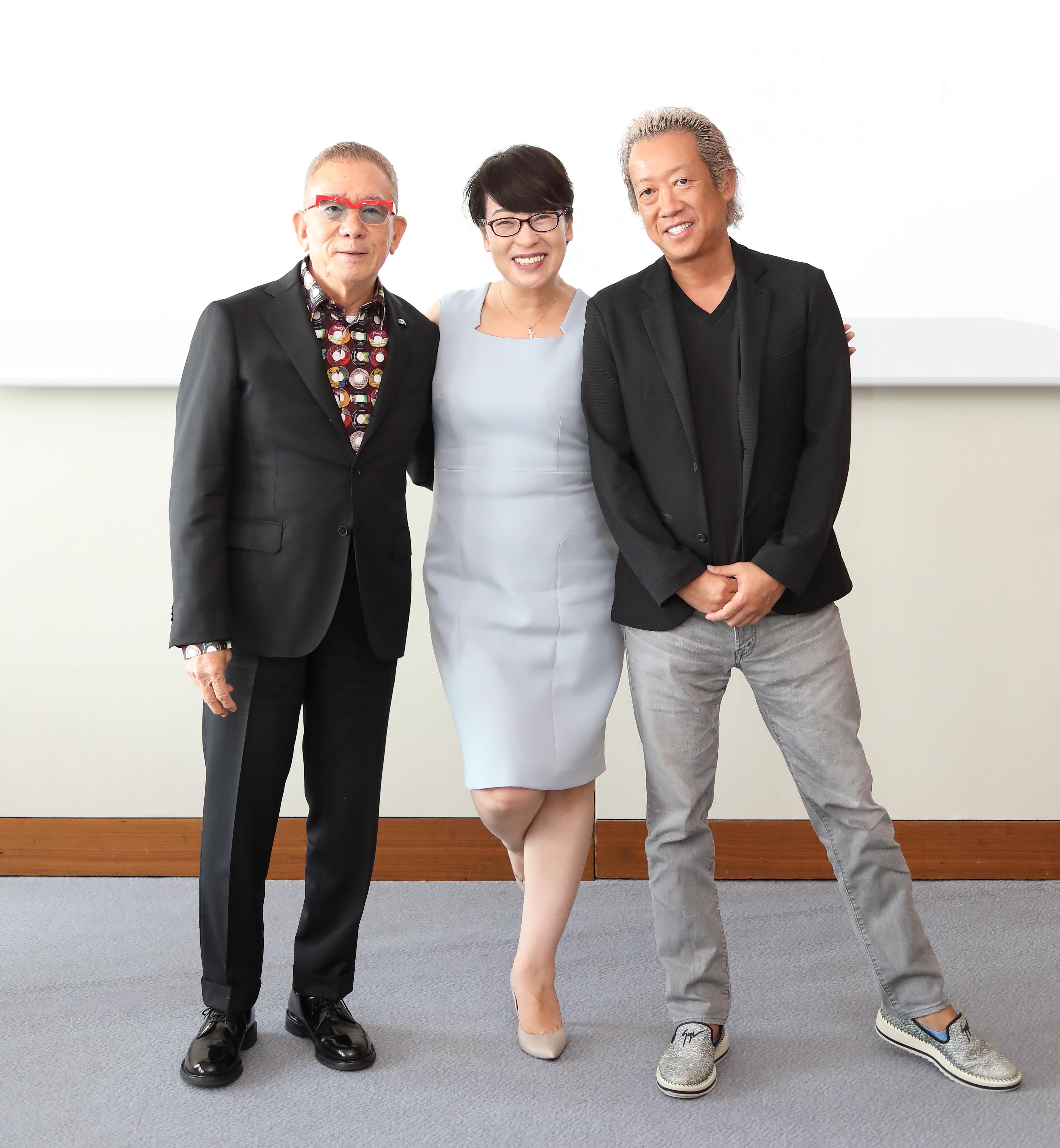
(End)





